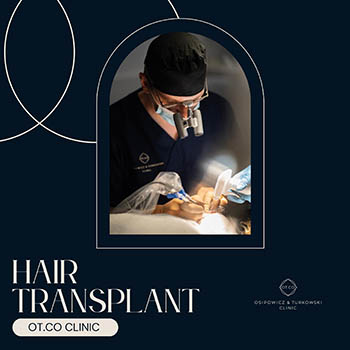TL;DR:
- Hormones regulate sebum, collagen, and elastin, affecting skin and hair health.
- Common skin issues include acne, alopecia, psoriasis, dermatitis, hyperpigmentation, and loss of firmness due to declining estrogen levels with age. Treatments include hormone therapy, facelifts, and thermolifting.
- Hair issues like alopecia, hair loss, and disorders are treated with hormone therapy, supplements, and trichology assessments (e.g., trichoscopy).
- Hormonal fluctuations (e.g., during pregnancy/menopause) can cause facial erythema. Lifestyle changes, skincare, medication, and treatments like laser therapy or peels help.
- APTOS threads improve skin elasticity by stimulating collagen/elastin production, offering a non-surgical facelift lasting 18-24 months.
- Personalized diagnosis and treatment are key; consult professionals to address hormone-related skin and hair issues effectively.
Hormones play a key role in the functioning of the body, and their disorders can lead to many health and aesthetic problems. In this article, we will focus on the effects of hormones on the condition of skin and hair, as well as their treatment options with aesthetic medicine procedures.
Hormones and skin condition
Hormones affect the skin by regulating the production of sebum, collagen and elastin. Hormonal skin problems affect both men and women, although they are more common in ladies, due to fluctuations during the menstrual cycle. The most common hormone-related skin problems are acne, hormonal alopecia, psoriasis, atopic dermatitis and hyperpigmentation. Hormones can also affect the loss of skin firmness, because as we age, levels of hormones such as estrogen decline, leading to problems common to menopausal women: loss of skin elasticity, reduced bone density and loss of muscle mass. Adequate hormonal treatment can help maintain firm skin, but the aging process cannot be 100% stopped. Aesthetic medicine treatments, such as facelift and thermolifting, are also used to help improve skin firmness.
Effects of hormones on hair condition
Hormones affect hair by regulating its growth, condition and color. Hormonal hair problems affect both men and women. Among the most common are hormonal alopecia, hair loss and hair growth disorders. The most popular solutions here are hormone therapy, supplementation and consistent, proper care. Ideally, the first step is to visit a specialist, a trichologist in Warsaw will perform a trichoscopic examination, check the condition of the skin and hair follicles, and if necessary order further blood tests to get to the cause of the problem, instead of just fighting the effects.
Hormones vs. facial erythema
Facial erythema can have a wide variety of causes, including hormonal ones. The risk of its appearance is increased by fluctuations in hormone levels, especially during pregnancy, menstruation or menopause. Treatment of facial erythema consists mainly of lifestyle changes and avoiding factors that cause it, such as:
- Allergic reactions to untested cosmetics, foods or medications,
- Stress and emotions that cause blood vessels in the skin to dilate,
- High ambient temperatures, hot drinks and food, and taking a hot bath or sauna, which causes blood vessels to dilate,
- Exposure to the sun, which causes blood vessels in the skin to dilate,
- Abuse of alcohol or smoking, which affect blood circulation and blood vessels.
In some cases, medications such as antibiotics, corticosteroids or oral contraceptives are also necessary. There are also natural ways to relieve erythema, such as using creams with aloe vera, chamomile or vitamin E. However, the best results come from a comprehensive approach, so it is worth combining moisturizing and brightening treatments, laser therapy and chemical peels.
APTOS threads for skin lacking elasticity
As we age, collagen and elastin production declines, causing wrinkles to appear on the face. Various factors contribute to this:
- Decrease in hormone levels – estrogen, whose levels in women decline with age, is an important stimulator of collagen and elastin production in the skin. A decrease in its levels therefore affects the production of these proteins.
- Decreased fibroblast activity – fibroblasts are the cells responsible for the production of collagen and elastin in the skin. As we age, their activity decreases.
- DNA damage – our cells are exposed to DNA damage due to many factors, such as UV radiation, toxins and free radicals. This damage accumulates in the body as we age and negatively affects the ability of fibroblasts to produce collagen and elastin.
- Increased activity of enzymes that degrade collagen and elastin – with age, the activity of enzymes that degrade collagen and elastin in the skin increases. This leads to a decrease in the levels of these proteins and a loss of skin firmness and elasticity.
The solution to the problem is nici APTOS, which increases skin tone and stimulates the production of collagen and elastin, so the effects of the treatment last from 18 to 24 months. We achieve a lifting effect without the use of a scalpel, reduce wrinkles and improve the oval of the face. The method involves inserting special thin threads under the skin, which are then tightened, gently stretching and stimulating skin regeneration.
In conclusion, hormonal problems can have a significant impact on the condition of skin and hair. However, with the right cosmetic and medical treatments, including hormone therapy, visits to a trichologist, and the use of APTOS threads, among others, the negative effects of hormones on beauty can be offset. It’s worth remembering that every body is different and reacts differently to treatments, so it’s a good idea to consult your doctor before making any decisions.
Conclusion
Hormones shape your skin and hair, but imbalances cause noticeable issues. From acne, hair loss, and erythema to drooping skin, understanding these problems is key. Treatments like hormone therapy, trichologist visits, and APTOS threads offer targeted solutions. While aging and hormonal changes can’t be fully stopped, combining the right care and medical interventions can restore confidence. Always consult an expert to tailor treatments to your needs. Remember, your beauty reflects your unique journey, not perfection.






